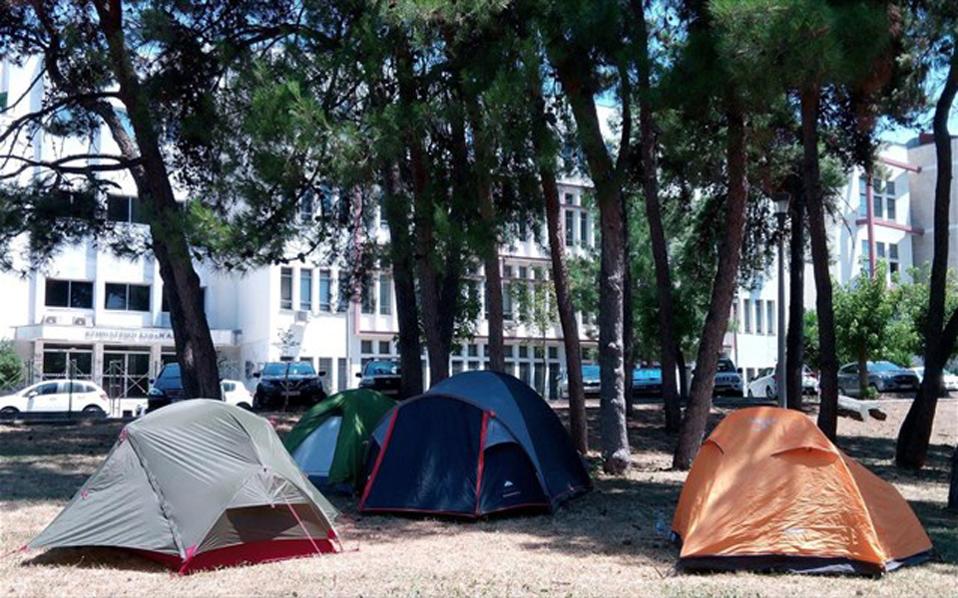Solidarity with what?

The arrival of hundreds of supporters of the so-called No Border Camp pro-refugee movement at Thessaloniki’s Aristotle University is not an issue merely for Greece’s academic community. The fact that an unauthorized event is being held on university property should in fact be an issue for all of us, as a society and a country.
Who are all these pro-refugee activists who have for the past couple of days been camping out on university grounds in Greece’s second city? Who are all these young people (according to reports, the majority are Italian, German and Dutch nationals) who have arrived on their motorbikes with their tents and makeshift kitchens to spend a full 10-days at the campus, as if they own the place? How can they take over this public space, snubbing an official ban by the authorities? Where does all this attitude come from? How can they go around imposing their own law and order?
The only type of ideology that can be identified behind all this activity is one of utterly arbitrary behavior. The only solidarity that can be identified is solidarity with lawlessness. When they are not busy challenging, fighting against, or humiliating the nation’s institutions, these people claim to be working for the good of society. But the bullying way in which they act and operate shows nothing but anger and marginalization.
The activists are seeking to impose their own rules. They want to camp out on university grounds but they do not want any media presence on the site. They take decisions in the absence of authorities and the local community but they refuse to take any criticism.
Apparently, outsiders are not welcome. They spread fear so that no one will dare come near the camp. They refer to people as targets. Whoever disagrees with them is branded an enemy.
Too bad Greece’s bankruptcy was not just financial. It is not poverty-stricken Greece that is attracting these activists; it is the tolerant Greece, a nation that is too weak not just to impose but even to believe in institutions and rules, mistaking the implementation of the law for an extremely lax interpretation – so lax it becomes meaningless.



